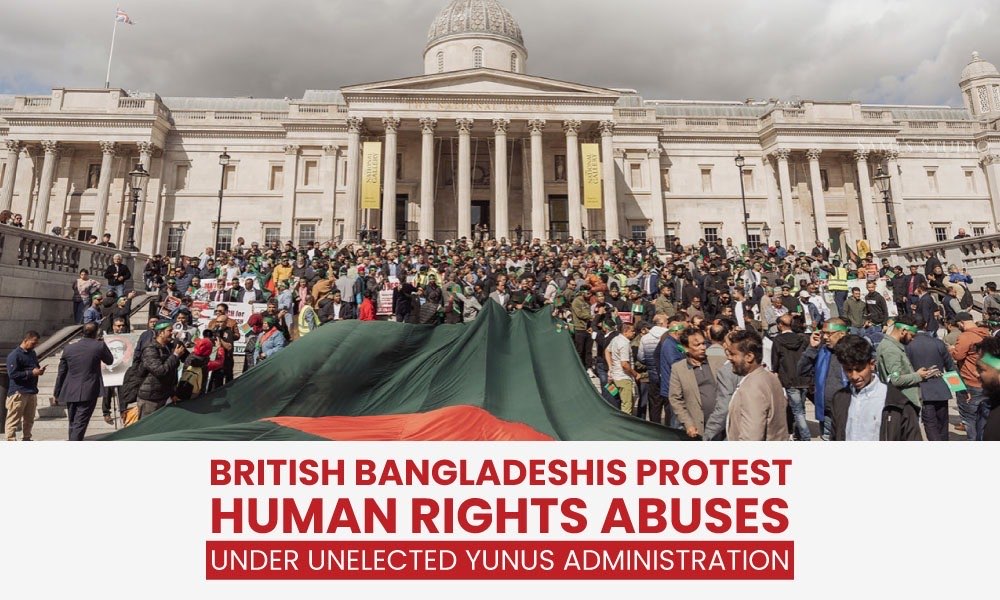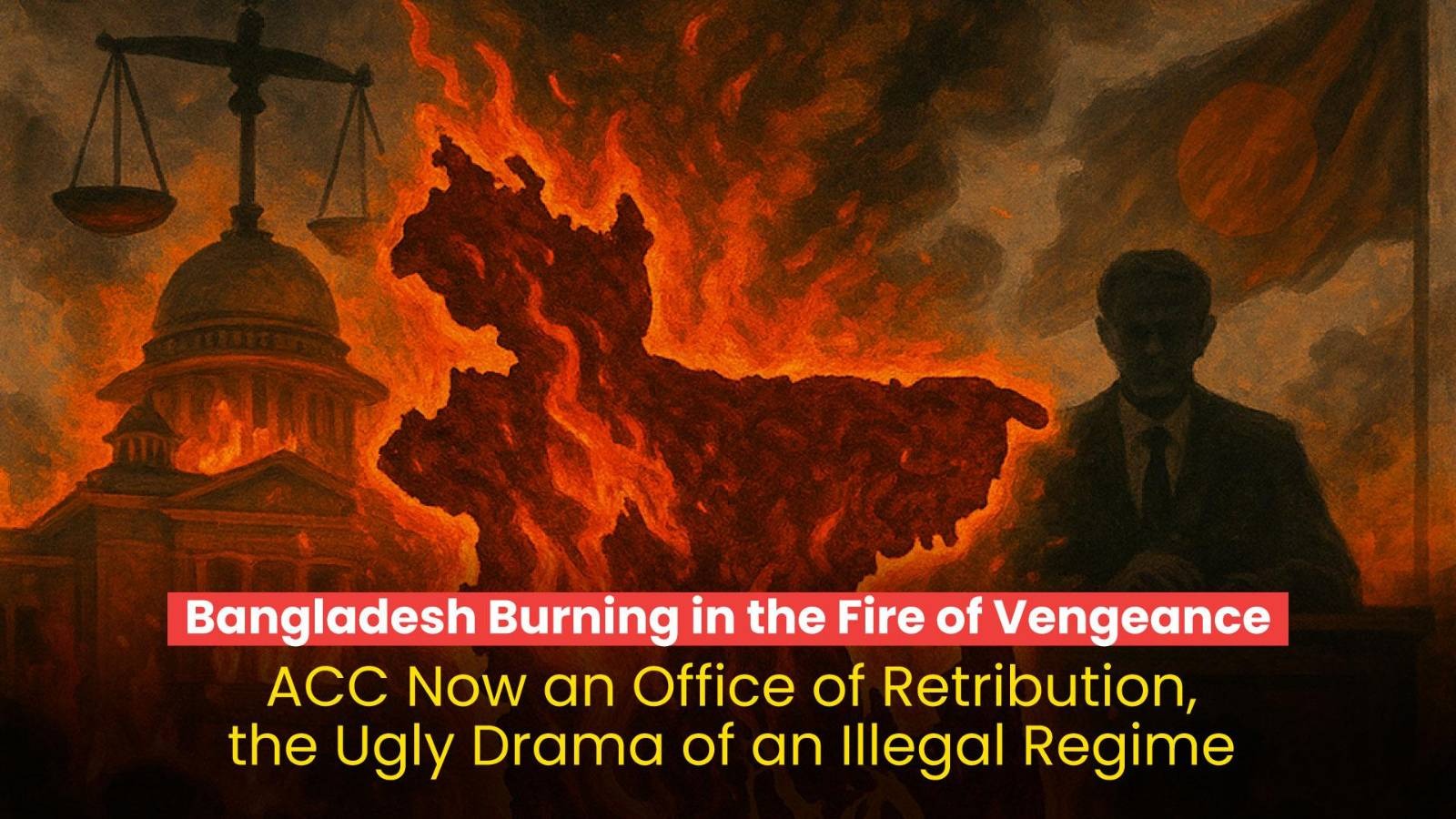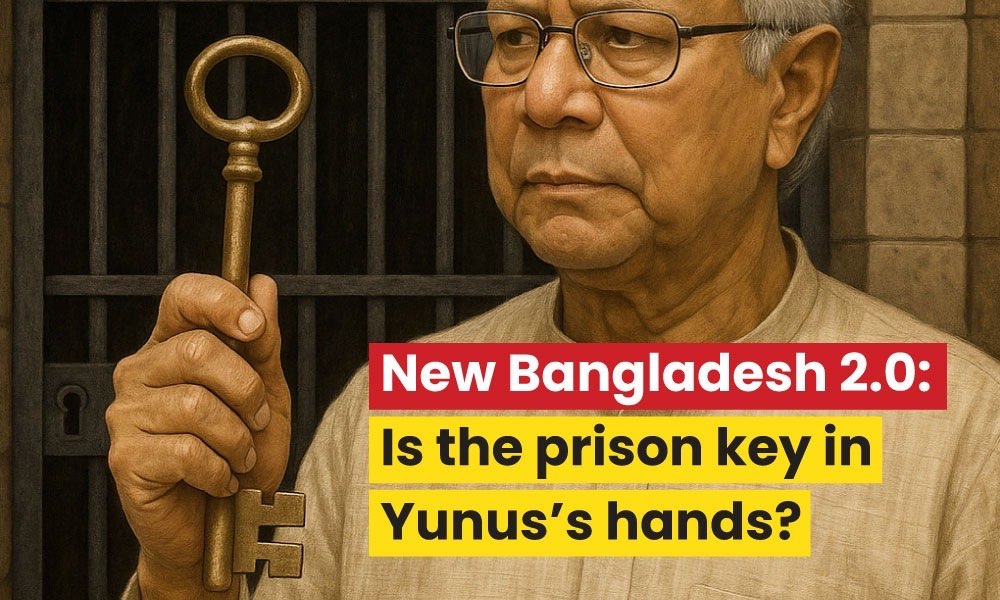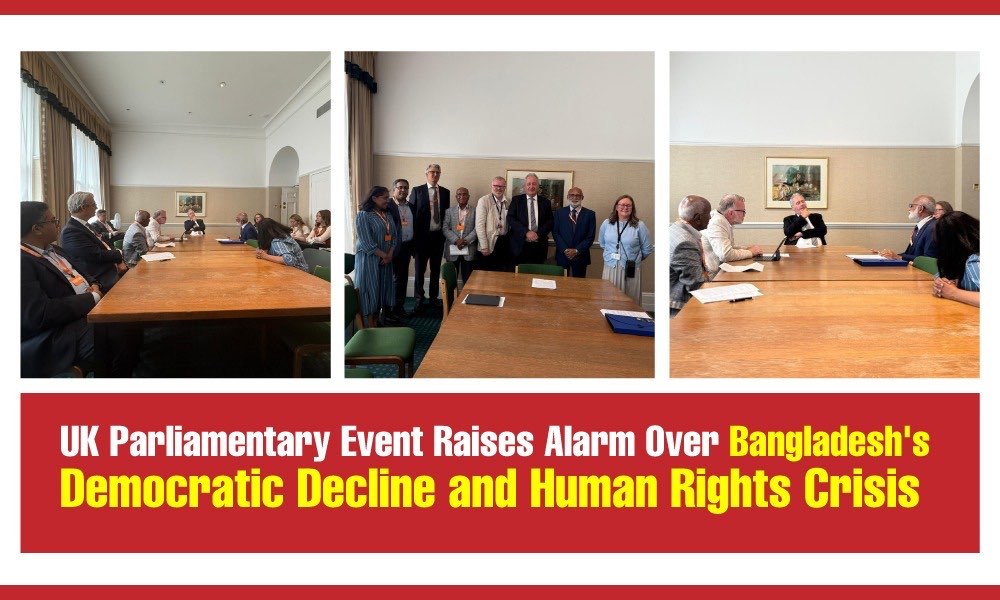30381
Published on August 21, 2022Since 2009, Bangladesh Nationalist Party (BNP) along with its extremist allies Jamaat E Islami and its student wing, Islami Chhatra Shibir, have developed a brand of politics characterized predominantly by extremely violent street protests targeting civilians and law enforcement officials, intermittent and targeted pogroms on religious minorities and assassination of political opponents, often using violent extremist organizations like Jamaatul Mujaheddin Bangladesh (JMB) and Harkat Ul Jihad. Since 2013, a newer dimension to the violence came in the form of petrol bombs and Molotov cocktail attacks on passengers in public transport. This document summarizes the disturbing scenario BNP-Jamaat had been creating since 2001.
BNP-Jamaat 4 Party Alliance Government (2001-06)
Attacks on Awami League: This particular nature of “terror-politics” was most strikingly demonstrated by BNP-Jamaat in 2001 right after they won the general elections and continued throughout the next five years. During this period, BNP-Jamaat goons killed 26,000 workers and leaders of the Awami League, including former Finance Minister Shah A M S Kibria and former MP Ahsanullah Master. As many as 18 attempts were made on Awami League President and current Prime Minister Sheikh Hasina’s life during this time. For this reason, BNP-Jamaat used its connections with extremist groups such as Huji and JMB, getting them to do the dirty acts of killings which provided them with political protection to spread their extremist ideologies. In one single act of deadly political violence, BNP-Jamaat’s earmarked future leader and convicted money launderer Tarique Rahman orchestrated a grenade attack on an Awami League rally to cleanse the party of all its leaders including Party President and current Prime Minister Sheikh Hasina. Twenty-four leaders and activists of the Awami League and its associate bodies were killed and over 300 others suffered splinter injuries in the August 21 attack. Among the dead was Ivy Rahman, then Mohila AL president and also the wife of late president Zillur Rahman.
Violence against Minorities: The attacks against Hindus by Bangladesh Nationalist Party (BNP) and Jamaat E Islami following October 2001 elections have been widely reported and documented. Amnesty International reported :
The wave of attacks against the Hindu community in Bangladesh began before the general elections of 1 October 2001 when Hindus were reportedly threatened by members of the BNP-led alliance not to vote, since it was perceived their vote would be cast for the Awami League. The backlash after the elections was systematic and severe. Reports indicate that the worst affected areas have been in Barisal, Bhola, parts of Pirojpur, Khulna, Satkhira, Gopalganj, Bagerhat, Jessore, Commilla and Norsingdi. Attackers have reportedly entered Hindu homes, beaten members of the family, looted their property and in some cases, raped Hindu women.
During this carnage, rape was used as a principal means of violence and intimidation. Human rights organizations in Bangladesh believe over 100 women may have been subjected to rape. Reports persistently allege that the perpetrators have been mainly members of the BNP or its coalition partner Jamaat-e-Islami. A number of Hindu girls were reportedly abducted. It is not known whether or not they have returned to their families. Hundreds of Hindu families have fled across the border into India because they have been attacked or threatened (AFP, 29 Oct 2001). They either ended up in camps or went to their distant relatives. Hindus interviewed by journalists have said they have been targeted because they were thought to have been supporters of the defeated Awami League. Hindu places of worship were also attacked during this time.
According to a report of the Research Directorate, Immigration and Refugee Board, Canada, incidents of violence against Hindus in Bangladesh following the 1 October 2001 election were widely reported in several sources such as BBC (10 Oct. 2001), Gulf News (12 Feb. 2002), Press Trust of India (20 Oct. 2001), Pax Christi (26 Nov. 2001) etc. The report states that:
"...these incidents include rape, torture, murder and looting as well as setting fire to Hindu properties. Hundreds of Hindus have reportedly fled the violence, crossing the border into India. The Fair Election Monitoring Alliance (FEMA) reported that most of the violence was committed by BNP activists... The attacks against Hindus have occurred in numerous districts across Bangladesh".
The post-2001 elections attacks on minorities by BNP-Jamaat were also reported in the US Department of State's International Religious Freedom Report 2005. It states:
"Reports of BNP harassment of Hindus, who traditionally vote for the AL (Awami League), preceded and followed the 2001 election. Reported incidents included killings, rape, looting, and torture... Since the 2001 elections, religious minorities reportedly have continued to be targeted for attacks, which has led to the requirement for guards to be present at church and temple ceremonies. Reportedly, incidents include killings, rape, torture, attacks on places of worship, destruction of homes, forced evictions, and desecration of items of worship. These claims continued during the period covered by this report. "
According to the investigation of a Judicial Commission in Bangladesh, formed at the behest of the Supreme Court of Bangladesh, it was found that 26,352 leaders and supporters of the Bangladesh Nationalist Party (BNP) and Jamaat E Islami were involved in the aforementioned crimes. This included 26 Ministers and lawmakers of the BNP-Jamaat Alliance Government. The accused 6 ministers are Ruhul Quddus Talukder Dulu, Abdus Salam Pintu, Motiur Rahaman Nizami, Altaf Hossain Choudhury, Tariqul Islam and Hafizuddin. Among them, Altaf Hossain Choudhury was the then-home minister.
Jamaat-Shibir Violence for Opposing the War Crimes Trials (2013)
A total of 15 police members were killed in 2013 by Jamaat-Shibir backed by BNP during their violence to stop and oppose the war crimes trials, which is the domestic tribunal set up by Bangladesh to try war crimes, genocide and crimes against humanity committed during the 1971 Bangladesh Liberation War. In 419 major incidents of political violence throughout the year 2013, spearheaded by Jamaat-Shibir, 492 people were killed while 2,200 others were injured in the incidents.
Violence after Mollah verdict: Jamaat-e-Islami declared a two-day hartal in protest against the ICT verdict against Quader Mollah awarding life imprisonment on February 5. At least three people were killed and many injured across the country as Jamaat-e-Islami and its student wing Chhatra Shibir cadres enforced a dawn-to-dusk hartal protesting the war crimes trial of its leader Abdul Quader Mollah. Besides, four persons were killed and at least 50 others injured in clashes between Jamaat-Shibir thugs and police in Singair sub-District in Manikganj District in a hartal on February 24.
Violence after Mollah execution: At least seven people were killed and 150 others injured in clashes across the country on December 13 as activists of Jamaat-e-Islami and its student wing Islami Chhatra Shibir engaged in violence following the execution of war crimes convict Abdul Quader Mollah, a top Jamaat leader, on December 12.
Violence after Sayedee verdict: On February 28, at least 40 persons, including 12 policemen, were killed and more than 2,000 people were also injured as Jamaat-e-Islami and its student wing Islami Chhatra Shibir went on the rampage, in the name of the movement, immediately after ICT verdict that sentenced Jamaat leader Delwar Hossain Sayedee to the death penalty on charges of war crimes he had committed in 1971, including 6 persons with 4 policemen killed in Gaibandha District, 1 civilian killed in Satkhira District, 4 civilians killed in Thakurgaon District, 4 persons including three civilians and one Policeman killed in Chittagong District, 2 civilians killed each in Cox’s Bazar, Chapainawabganj and Noakhali Districts and 1 civilian each in Dhaka, Moulvibazar, Natore and Bogra Districts. On March 1, at least seven more people were killed taking the death toll to 47 as Jamaat-Shibir men continued clashing with law enforcers across the country. Of particular target here are the Hindus of Bangladesh, which faced physical violence and property damage, loot and arson.
In Gaibandha, a rickshaw-puller and a tea-stall owner were killed as Jamaar-Shibir men clashed with law enforcers at Bangsharhat town. In Sylhet, Jagat Juti Talukder (32), a former leader of BCL was hacked to death by suspected Shibir men in Sylhet town. On March 3 at least 23 people were killed and more than 1,000 wounded as violence escalated on the first day of hartal (shut down) Jamaar-Shibir men enforced across the country on the first day of 48-hour hartal called by Jamaat-e-Islami. In Bogra District at least 10 civilians, including three women, were killed in fierce fighting between law enforcers and Jamaat-Shibir as villagers got caught in the violence In Rajshahi District, 4 civilians were killed in clashes between the Police and Jamaar-Shibir men. In Jheniadah District, Omar Faruque (40), a Police constable was killed when Jamaar-Shibir men swooped on the law enforcers. On March 4, 5 people were killed and 17 others injured as Jamaar-e-Islami and its student wing Shibir men clashed with law enforcers across the country on the concluding day of the two-day hartal.
Hundreds of people were injured in clashes with Police, vehicles were vandalized across the country a couple of days after the death sentence to BNP leader Salauddin Quader Chowdhury was awarded by the International Crimes Tribunal (ICT-BD). BNP-Jamaat men hurled cocktails, and petrol bombs at the village home of ICT chairman Justice Fazle Kabir, Chief Election Commissioner Rakibuddin Ahmed, Information Minister Hasanul Haque Inu and Supreme Court Justice SK Sinha, and also killed a key witness in the Sayeedee case.
Violence Centered on the 10th General Election (2014 & 2015)
2014: The BNP-Jamaat alliance let loose a reign of terror to resist the 5 January election of 2014. They vandalised and torched hundreds of vehicles. As many as 200 people, including 20 law enforcers, were killed by their petrol bombs, handmade bombs and other sorts of violence. They felled thousands of roadside trees. They torched small shops, government and private establishments, and power plants. The goons of BNP-Jamaat vandalised mosques, temples, pagodas and churches, and torched hundreds of copies of the holy Quran. On the day of the election, they killed 26 people, including a presiding officer and torched 582 schools across the country, that were serving as voting centres. Braving all obstacles, people exercised their voting rights and helped continue the democratic process.
2015: From 4 January 2015 onward, BNP-Jamaat unleashed another reign of terror in the guise of marking one year of the 5 January 2014 election. They killed 231 people (mostly through arson and petrol bomb attacks) and injured (mostly through burning) 1,180 others. Arson attacks were conducted to burn 2,903 cars, 18 rail carriages and 8 passenger water vessels. Through targeted attacks, 70 government offices were vandalized and or destroyed and 6 land offices were burnt.
Economic Costs: In the violence centring the 10th parliamentary elections preceded by BNP-Jamaat’s violence to stop the war crimes trials cost the Bangladesh economy at least 50,000 crore Taka (or more than USD 6 billion) in the last six months of 2013 alone. According to the Dhaka Chamber of Commerce and Industry, one of the country’s premier trade bodies, each day of hartal (strikes) and oborodhs (blockades) cost the nation 1,600 crore Taka (or USD 192.3 million) or 0.2% of the GDP. This means that the more than 8 months’ worth of strikes and blockades by BNP-Jamaat in 2013, 2014 and 2015 cost the nation more than USD 1.53 billion, which does not even include the actual costs of the properties damaged by BNP-Jamaat violence during these times.
Minority Targets: According to police reports submitted to the High Court Division of the Supreme Court of Bangladesh, around 160 incidents of attacks and atrocities on Hindus took place in 21 districts after the January 5 parliamentary polls by BNP-Jamaat. Property worth around TK 4 million was damaged in 70 of those attacks and local BNP-Jamaat activists were responsible for most of the occurrences. The atrocities include injuring Hindu people, damaging their houses, temples and business establishments and setting them on fire, and looting valuables.
On 15 January 2014, the High Court Division issued a suo-moto rule, pursuant to which officials of different police ranges submitted the reports to the court through the Office of the Attorney General. Hindus in Dinajpur, Mymensingh, Netrakona, Sherpur, Tangail, Comilla, Chandpur, Bagerhat, Jessore, Narail, Rajshahi, Naogaon, Natore, Joypurhat, Barisal, Pirojpur, Jhalakathi, Rangpur, Gaibandha Nilphamari and Thakurgaon districts came under the attacks1.
BNP a Terrorist Organization: Canadian Court
The fact that BNP’s violent activities have passed the threshold of political activism into terrorist activities has been established in a foreign court too. The Canadian Federal Court in Ottawa, Ontario in Gazi v. Canada (Citizenship and Immigration) (2017 FC 94) held that BNP is indeed a terrorist organization. The court took into account that BNP is a party that uses armed struggle or violence to reach political objectives, uses ‘ammunitions and arms’ like hand bombs, pistols, and big swords like in a war and also attacks the leading government’s people at the time of strike or precession. It also noted that BNP “…uses sticks to hit people and shoot pistols at people and throw hand bombs. They burn the stores.”
The court stated:
‘The hartals employed by the BNP have significant economic impact on Bangladesh’s economy and have resulted in both substantial damage to property and both death and serious bodily harm caused by BNP activists and members as well as disruptions in service.’ and ‘BNP’s continued reliance on hartals as a tool to coerce the government by creating significant economic disruption as well as the incidences of violence that resulted from the implementation of the hartals caused by BNP members are sufficient to find that the BNP constituted terrorist acts.’
In reaching the conclusion that it is indeed reasonable to believe that the BNP was, is, or will be engaged in terrorism, the court looked at several reports from such sources as BBC, AFP, Institute of Commonwealth Studies, Foreign Policy Magazine, Economist, the South Asian Terrorism Portal and the Human Rights Watch which showed the involvement of BNP, especially in recent years, in such tactics as forcibly enforcing strikes, costing a terrible economic price for the strikes, mounting firebomb attacks, causing deaths from arson attacks on buses, killing of civilians during the strikes, implementing targeted attacks on villages, attacking religious minorities, attacking polling stations, burning down schools, using street children to throw petrol bombs and creating and detonating explosives to press home their demands.
Justice Brown concluded:
“The hartals employed by the BNP have significant economic impact on Bangladesh's economy and have resulted in both substantial damage to property and both death and serious bodily harm caused by BNP activists and members as well as disruptions in services.”
He added that these tactics rise above simple peaceful protest or advocacy. He also noted that he reasonably believes that BNP implicitly condoned the use of violence, as they never took a strong stance against them, only meekly condemning some incidents after they had taken place.
Within a few months of the Gazi decision, another Canadian Federal described BNP again as a terror organization as it denied asylum prayer of a BNP leader for the party's role in triggering violence and vandalism to enforce a protracted nationwide hartal in Bangladesh. Federal Court Judge Justice Fothergill made the remark and dismissed the asylum petition of the BNP activist for judicial review of the immigration authorities' decision on May 12. The court upheld the previous Canadian immigration authority decision saying the petitioner is a member of such a political party that engages, has engaged, or will engage in acts of terrorism. The judge said he did not find any wrong in the immigration authority's decision as BNP was well aware of the impact of the "hartal" as they enforced it with an intention. The judge said the BNP's consistent use of hartals and their resulting incidences of violence led the immigration officer in reaching a logical conclusion that BNP is a terror organization. Justice Fothergill not only dismissed the judicial review plea but also binned SA's petition seeking to appeal against the verdict to a higher court.
---
1. See: "Attacks on minorities continue", The Daily Ittefaq, Dhaka, 9 January 2014; "Hindus under threat", The Daily Star, Dhaka, 7 January 2014; Protests continue, more temples burnt, stolen", New Age, Dhaka, 11 January 2014; "Hindu temple in Bangladesh vandalised", The Hindu. 8 January 2014; "Obhoynagar reminds of '71 horrors", Dhaka Tribune, 7 January 2014; "Terror on Hindus", The Daily Star, Dhaka, 6 January 2014; "2 Hindu housewives violated". bdnews24.com. 10 January 2014; "Ornaments, money stolen from Magura temples", Bangladesh Sangbad Sangstha, 10 January 2014














